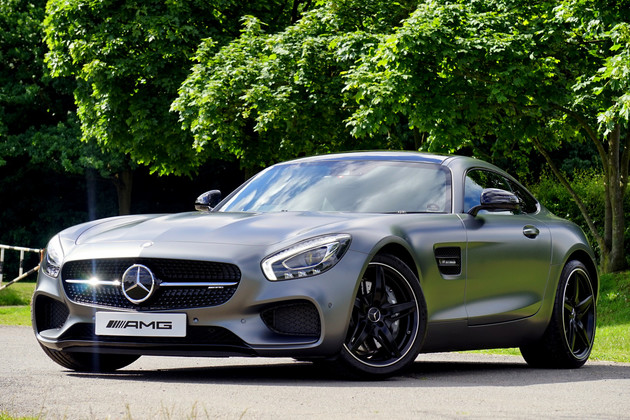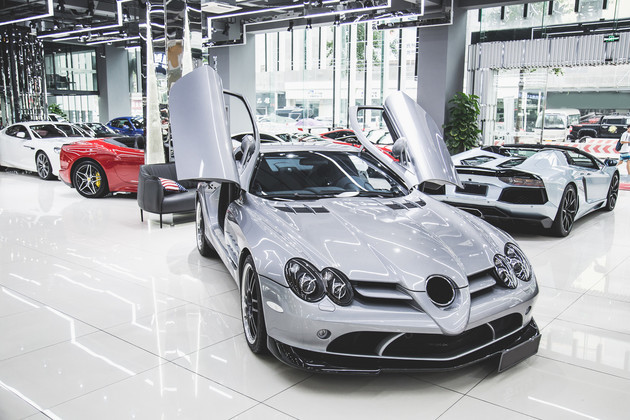
Photo/Shetuwang
Nov. 22 (NBD) -- Luxury car sales bucked the generally weak trend for the Chinese auto market in October this year.
Statistics from the China Association of Automobile Manufacturers revealed the country has witnessed a four-month streak of falling vehicle output and sales since July 2018.
In October, 2.334 million cars were produced while 2.38 million cars were sold in China, representing a drop of 10.1 percent and 11.7 percent, respectively, from a year earlier.
For the January-October period, the country produced a total of 22.826 million cars and delivered 22.871 million cars in total, a dip of 0.4 percent and 0.1 percent, respectively, on an annual basis, the first ever negative year-over-year growth in the Chinese vehicle market year to date. The year 2018 will likely be the first in 26 years for the Chinese vehicle market to post negative annual increase.
This was largely due to the structural differentiation in the passenger car market, with deliveries of new energy vehicles and premium car labels maintaining a strong growth momentum while those of traditional fuel cars and proprietary and joint-venture brands showing a downward trend, according to the China Passenger Car Association.
Driven by the import tariff cuts on vehicles and auto parts, the passenger car segment witnessed a rising upgrade trend in consumption. Data shows retail sales of premium cars jumped 7.4 percent year over year in October.
In the month, helped by strong demand for the C-Class and E-Class, Mercedes-Benz (including the smart brand) shipped 50,200 new cars in mainland China, up 9.2 percent on an annual basis. Audi saw its car sales rise 5.4 percent to 56,700 units. BMW (including the MINI brand) delivered 56,400 cars, a year-over-year rise of 12 percent.
For the period from January to October 2018, Mercedes-Benz posted a 12.7 percent year-on-year increase at 550,900 units. Audi logged a 14.2 percent rise at 539,700 units. BMW's total sales grew 6 percent to 516,100 units.

Photo/Shetuwang
It is worth noting that the market share of premium cars in the Chinese auto market expanded steadily from 6.2 percent in 2015 to 7.4 percent in 2017.
In the first quarter of this year, premium vehicles grabbed 8.5 percent share of the country's vehicle market, with the proportion jumping to 9.1 percent in the second quarter and further expanding to 9.5 percent in the third quarter.
Currently, premium car brands are revving up localization efforts to expand their presence in China.
Last Wednesday, Daimler AG announced plans to build a Research and Development Tech Center China with a total investment of over 1.1 billion yuan (158.5 million U.S. dollars). This marks the further expansion of the company's footprint in its single largest market and will be its second major R&D site in Beijing, following the Mercedes-Benz R&D Center established in 2014.
In May this year, Beijing Automotive Group Co signed an agreement to build a high-end new energy Mercedes-Benz vehicle production base in Shunyi District of Beijing.
With a total investment of 11.9 billion yuan (1.7 billion U.S. dollars), the project has a designed annual production capacity of 150,000 vehicles in the first phase, with the first batch expected to roll off the production line by the end of 2019.
BMW has also upgraded its strategy for the Chinese market.
In October, the German carmaker extended its joint venture contract with Brilliance China Automotive Holdings through 2040. It also announced a massive 3 billion euro (3.4 billion U.S. dollars) investment to upgrade and expand its manufacturing facilities in Shenyang, Liaoning province. Besides, the company is pressing ahead with plans to produce MINI electric vehicles together with Great Wall Motor.
Audi expects to increase its number of locally-produced models in China to over 10 by 2022.
This year marked the 30th anniversary of the partnership between Audi and FAW Group. In March, the two companies announced that they would jointly set up a new sales company and a joint venture for mobility and digital services. The two new entities are projected to start operations at the end of this year.
Email: lansuying@nbd.com.cn


 川公网安备 51019002001991号
川公网安备 51019002001991号





